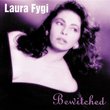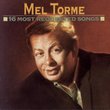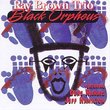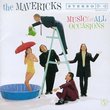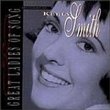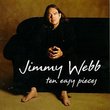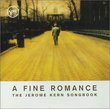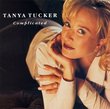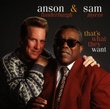| All Artists: Keith Jarrett, Thomas Crawford Title: Jarrett: Bridge of Light Members Wishing: 3 Total Copies: 0 Label: ECM Records Release Date: 4/18/2000 Album Type: Original recording reissued Genres: Jazz, Classical Styles: Chamber Music, Forms & Genres, Concertos, Historical Periods, Classical (c.1770-1830), Instruments, Strings Number of Discs: 1 SwapaCD Credits: 1 UPC: 028944535020 |
Search - Keith Jarrett, Thomas Crawford :: Jarrett: Bridge of Light
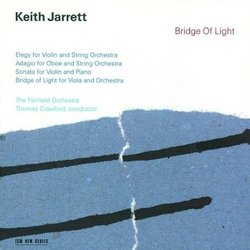 | Keith Jarrett, Thomas Crawford Jarrett: Bridge of Light Genres: Jazz, Classical
Keith Jarrett describes his pieces as "prayers that beauty may remain perceptible," and indeed he seems to have written exactly what his ear and heart told him. The music is peaceful, lyrical, pastoral, sometimes mournful,... more » |
Larger Image |
CD DetailsSynopsis
Amazon.com Keith Jarrett describes his pieces as "prayers that beauty may remain perceptible," and indeed he seems to have written exactly what his ear and heart told him. The music is peaceful, lyrical, pastoral, sometimes mournful, sometimes dancelike, often devotional. It spins out melodies in long silken threads, without real form or development, shaped only by rising and abating intensity. Its harmonies are firmly based in tonality, and there are hardly any dissonances. It could have been composed in an earlier century, but far from being derivative, its very lack of self-conscious striving for "style" gives it originality. The orchestral sound has a natural richness without gimmicky effects; the writing for the solo instruments is wonderfully idiomatic. The Elegy for Violin and Strings, written for Jarrett's maternal Hungarian grandmother, is somber, intense, with a gypsy flavor, and fluctuates between major and minor. The Violin and Piano Sonata has five contrasting movements, two of them dances, one Spanish, one half-Spanish, half-Oriental, both with an ostinato rhythm in the bass; the rest are singing and lyrical. Michelle Makarski plays both with a lovely pure tone and great nobility of expression. The Adagio for Oboe and Strings is pastoral but somewhat contrapuntal; Marcia Butler's full, languid tone both blends and contrasts with the strings. "Bridge of Light" for Viola and Orchestra has a chordal, hymnlike quality and colorful orchestration; the viola merges into and emerges from the texture, standing out with no apparent effort. Patricia McCarty, who commissioned and premiered the piece, plays it beautifully, with warm, loving tenderness; the orchestra is excellent. --Edith Eisler Similar CDs
Similarly Requested CDs
|
CD ReviewsOrchestral Lyricism Robert Harwood | Kitchener, Ontario | 07/01/2000 (4 out of 5 stars) "I suppose most will be familiar with Keith Jarrett as a solo pianist or member of a trio. He has released several works of classical performance and original composition. His renditions of Bach's Goldberg Variations, Mozart piano concertos, the music of Handel and Shostakovitch are exemplary. His own classical compositions have, perhaps, stirred more controversy. This recording, from 1993, features four original compositions including one in which Jarrett accompanies the violinist Michelle Makarski on piano (Sonata for Violin and Piano); the third section, "Dance", is one of the most invigorating and sweetly beguiling melodies I have heard. Elegy for Violin and String Orchestra is less immediatly recognizable as a Jarrett work. It opens with dark strings, bringing to mind the gypsy music of Hungary (where, Jarrett says, his grandmother was born). It is a moody piece - albeit without the dramatic emotional shifts which characterize much Hungarian music. But, then, Hungary remains only a flavor in this rich, evocative composition.This is contemporary classical music which, while being undeniably of this era, retains a strong sense of melody and harmony. The music does meander at times, giving an impression - not of aimlessness, but of a wandering curiosity; it's like a trip down an unfamiliar, quietly flowing river." Jarrett: Bridge of Light Paul H. Guttman | Incline Village, NV | 06/06/2010 (5 out of 5 stars) "Phenomenal masterwork from the guy known for his Jazz compositions. Elegy is a virtuoso piece of stunning beauty and thematic flow." Very un-Jarrett-like Incredulous stare | Cincinnati, OH | 04/10/2008 (5 out of 5 stars) "The five-movement piano and violin sonata is worth the price of the disk. Jarrett fans will not recognize his hand in this. It lies somewhere in a triangle between Ravel, Shostakovich and Alban Berg. Each movement is compelling in its own way; the fourth movement reaches a tense, transfixing climax. I also like the first piece on the disk, for violin soloist and string orchestra. I have not been able to appreciate the piece for oboe and strings or the piece for viola and full orchestra; maybe that's my fault. It doesn't matter, because the piano/violin sonata is a revelation."
|

 Track Listings (8) - Disc #1
Track Listings (8) - Disc #1
